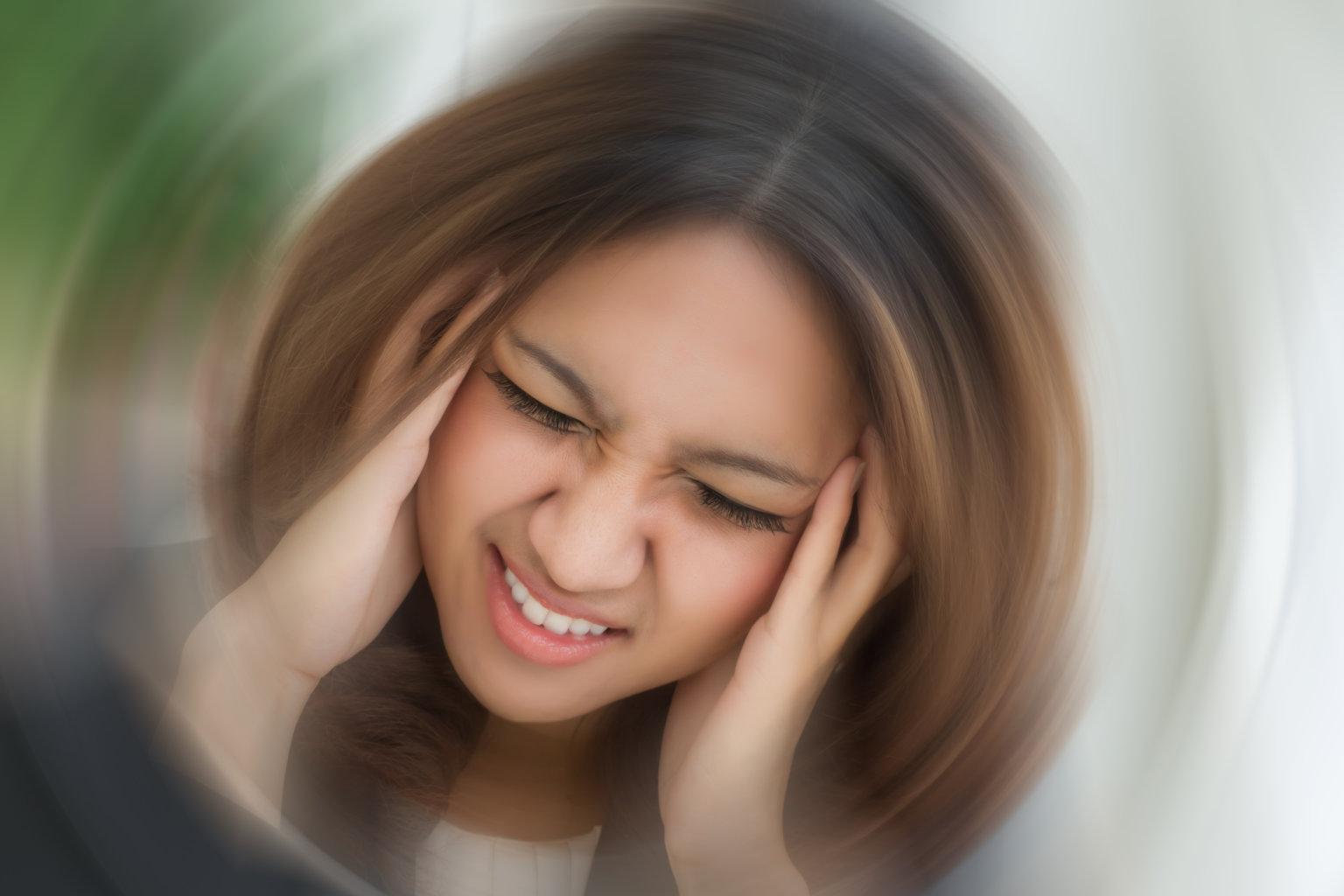Dizzy head – Dizziness, a common ailment affecting individuals of all ages, can manifest in various forms, from mild lightheadedness to severe vertigo. Understanding the underlying causes, symptoms, and treatment options for dizziness is crucial for effective management.
*
Causes of Dizziness

Dizziness, a sensation of lightheadedness or imbalance, can stem from various underlying medical conditions. Understanding the potential causes can help guide appropriate diagnosis and treatment.
Dizziness can be caused by:
Inner Ear Disorders, Dizzy head
- Benign paroxysmal positional vertigo (BPPV): Displacement of crystals within the inner ear, causing brief episodes of dizziness with head movement.
- Ménière’s disease: A condition characterized by episodes of vertigo, hearing loss, and tinnitus.
- Vestibular neuritis: Inflammation of the vestibular nerve, which transmits balance signals to the brain.
Neurological Issues
- Stroke: A sudden loss of blood flow to the brain, which can cause dizziness, imbalance, and other symptoms.
- Multiple sclerosis: A chronic neurological condition that can affect the brain and spinal cord, causing various symptoms including dizziness.
- Migraines: Severe headaches that can be accompanied by dizziness, nausea, and visual disturbances.
Cardiovascular Problems
- Low blood pressure (hypotension): A condition where blood pressure drops, causing lightheadedness and dizziness.
- Cardiac arrhythmias: Irregular heartbeats that can disrupt blood flow to the brain, leading to dizziness.
- Atherosclerosis: Narrowing of the arteries due to plaque buildup, which can restrict blood flow to the brain and cause dizziness.
Other Causes
- Anemia: A condition characterized by low red blood cell count, which can lead to dizziness due to reduced oxygen supply to the brain.
- Dehydration: Loss of fluids, which can cause dizziness due to decreased blood volume and reduced blood flow to the brain.
- Medications: Certain medications, such as antihistamines and antidepressants, can cause dizziness as a side effect.
Symptoms of Dizziness

Dizziness is a common symptom that can have various causes. It can manifest in different ways, each with unique sensory experiences, duration, and severity.
Types of Dizziness
There are several types of dizziness, including:
- Vertigo: A sensation of spinning or movement, even when stationary. It is often accompanied by nausea, vomiting, and balance problems.
- Lightheadedness: A feeling of faintness or near-fainting, often accompanied by sweating, nausea, and a rapid heartbeat. It typically lasts for a few seconds or minutes.
- Presyncope: A brief loss of consciousness that is preceded by lightheadedness, dizziness, and tunnel vision. It usually lasts for a few seconds and resolves on its own.
The duration and severity of dizziness episodes can vary significantly, ranging from mild and temporary to severe and persistent. Dizziness can significantly impact daily life, causing difficulty with walking, driving, and performing daily tasks.
Diagnosis of Dizziness: Dizzy Head
Accurately diagnosing dizziness is crucial to determine the underlying cause and provide appropriate treatment. Various diagnostic tests and procedures are employed to evaluate dizziness, including physical examination, medical history review, and imaging techniques.
Physical Examination
A thorough physical examination is essential to identify potential physical abnormalities that may contribute to dizziness. This includes:
- Neurological Exam:Tests reflexes, balance, coordination, and eye movements to assess the function of the nervous system.
- Cardiovascular Exam:Checks blood pressure, heart rate, and listens for murmurs or abnormal heart sounds to rule out cardiovascular issues.
- Ear Exam:Evaluates the ears for infections, blockages, or other abnormalities that could affect balance.
Treatment of Dizziness

Dizziness can be treated with a variety of methods, including medications, lifestyle modifications, and therapies. The best treatment option will depend on the underlying cause of the dizziness.
Dizziness is a common symptom that can be caused by a variety of factors. If you are experiencing dizziness, it is important to see a doctor to rule out any underlying medical conditions. What could cause dizziness ? Some common causes of dizziness include dehydration, low blood sugar, and inner ear problems.
If you are experiencing dizziness, it is important to stay hydrated and eat regular meals. You should also avoid alcohol and caffeine, as these can worsen dizziness.
Medications can be used to relieve the symptoms of dizziness, such as nausea, vomiting, and vertigo. Common medications used for dizziness include antihistamines, anticholinergics, and benzodiazepines.
Medications for Dizziness
- Antihistaminesblock the effects of histamine, a chemical that can cause dizziness.
- Anticholinergicsblock the effects of acetylcholine, a neurotransmitter that can cause dizziness.
- Benzodiazepinesare sedatives that can help to relieve anxiety and dizziness.
Lifestyle modifications can also be helpful in treating dizziness. These modifications may include:
- Getting regular exercise
- Eating a healthy diet
- Getting enough sleep
- Avoiding caffeine and alcohol
Therapies can also be helpful in treating dizziness. These therapies may include:
- Vestibular rehabilitation exercisesare exercises that can help to improve balance and coordination.
- Cognitive behavioral therapycan help to reduce anxiety and dizziness.
- Physical therapycan help to improve strength and balance.
Prevention of Dizziness

Preventing dizziness involves identifying and managing modifiable risk factors. Implementing practical lifestyle changes can significantly reduce the likelihood of dizziness episodes.
Regular exercise, a healthy diet, and effective stress management play crucial roles in preventing dizziness. These measures improve overall health, strengthen the body’s balance system, and reduce the risk of underlying conditions that can contribute to dizziness.
Lifestyle Recommendations
- Engage in regular physical activity:Exercise strengthens the vestibular system, improves balance, and enhances blood circulation to the brain.
- Maintain a balanced diet:Ensure adequate hydration and consume foods rich in vitamins and minerals, such as fruits, vegetables, and whole grains.
- Manage stress effectively:Practice stress-reducing techniques such as yoga, meditation, or spending time in nature to reduce anxiety and its potential impact on balance.
- Get enough sleep:Sleep deprivation can disrupt the vestibular system and increase the risk of dizziness.
- Avoid excessive alcohol and caffeine consumption:These substances can affect the inner ear and contribute to dizziness.
Managing Underlying Conditions
If dizziness is caused by an underlying medical condition, addressing the root cause is essential. This may involve medical treatment, lifestyle modifications, or both.
Regular check-ups and timely management of conditions like high blood pressure, diabetes, and heart disease can help prevent dizziness episodes.
Epilogue
Dizziness, while often a temporary inconvenience, can significantly impact daily life. By understanding the causes, symptoms, diagnosis, treatment, and prevention strategies, individuals can effectively manage this condition and improve their overall well-being.-*
